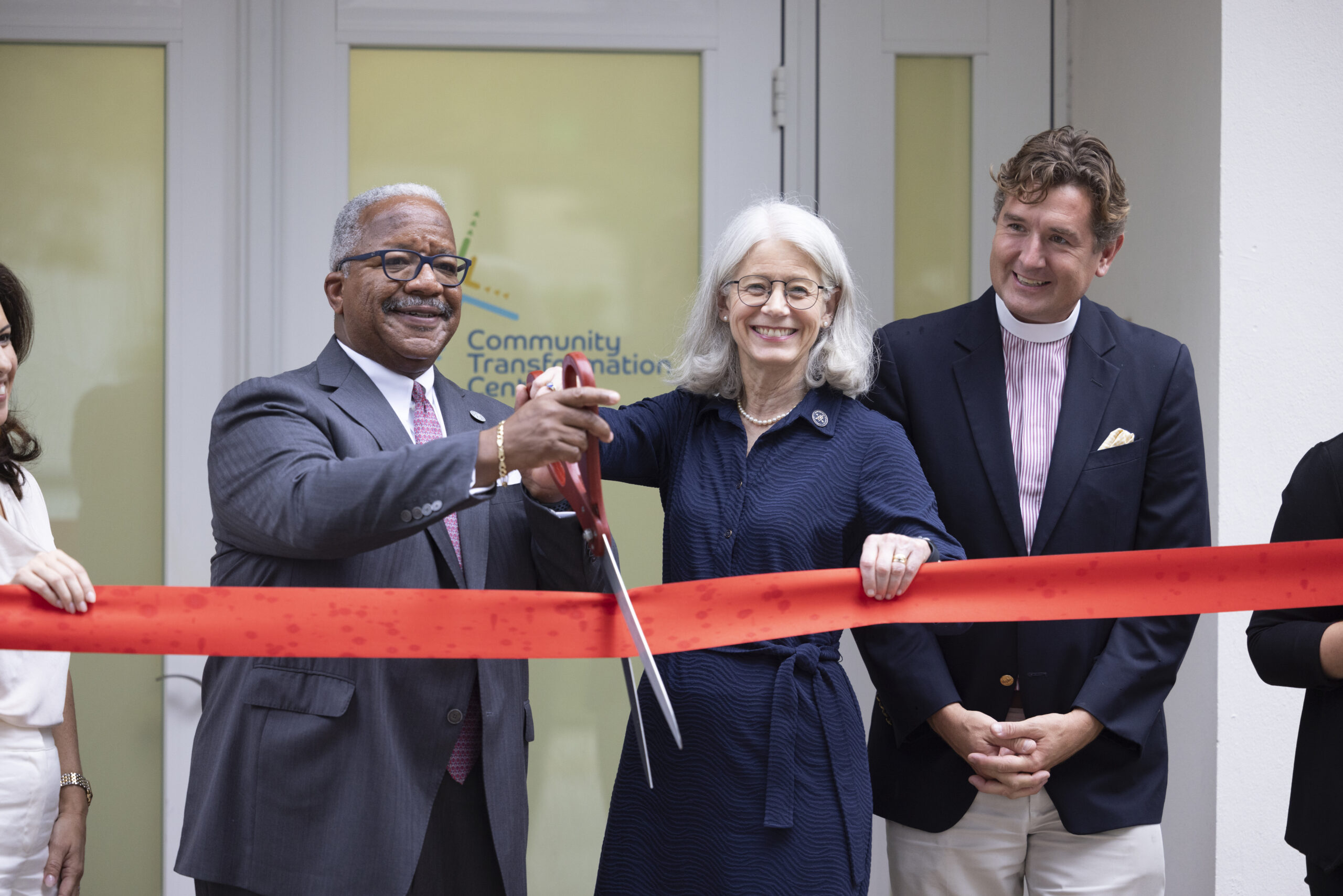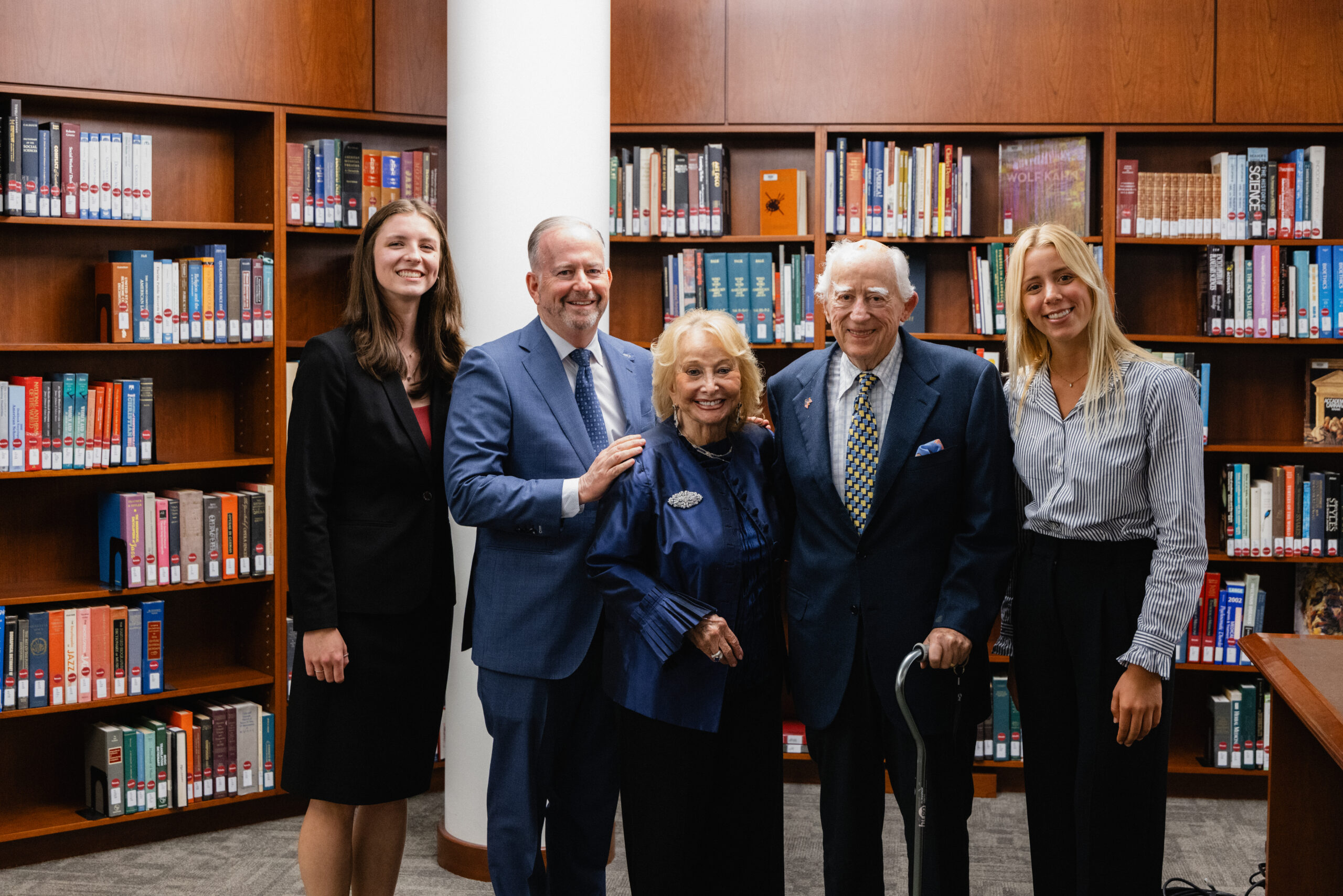Palm Beach Atlantic (PBA) University’s Community Transformation Center (CTC) had its grand opening and ribbon cutting ceremony Aug. 31, celebrating with the community.
“The Community Transformation Center is well placed to make a significant impact through their programs that will equip students for creative chaplaincy,” said Dr. Debra Schwinn, President of PBA. “Students trained by the center’s director, Dr. Gladwin, and associate director, Emma Feyas, as well as School of Ministry faculty, will be thoroughly prepared to serve as chaplains and spiritual care providers in both traditional and community settings.”
The CTC is designed to create pathways for co-vocational ministry in churches, institutions and community-based settings. The program offers graduate ministry degrees focused on chaplaincy, including a Master of Divinity degree, a Master of Arts in Chaplaincy and graduate certificates. The curriculum emphasizes Trauma and Spirituality, Transformational Leadership and Clinical Pastoral Education. The CTC also offers chaplaincy field experiences in traditional settings like hospitals, hospice care, and prisons and it extends spiritual care and chaplaincy to community-based nonprofits throughout South Florida.
The program empowers faith leaders to make a lasting impact not only within the walls of the church but also in the wider community.
“The CTC was launched from a $5 million grant from Lilly Endowment, Inc., to equip leaders for community transformation,” said Dr. Ryan Gladwin, Associate Professor of Theology and CTC Director at PBA. “The CTC is home to the Community Transformation and Chaplaincy program and a research hub dedicated to investigating the relationship between faith and social change.”
The CTC expands faith settings beyond the church congregation into communities, providing transformative care and healing to people with diverse needs. It integrates a trauma-informed approach to pastoral formation, empowering people to heal and lead others to healing. Their approach prepares spiritual leaders to engage with complex social issues and facilitate community-led solutions.
To learn more about the CTC, visit https://pbactc.org/.


